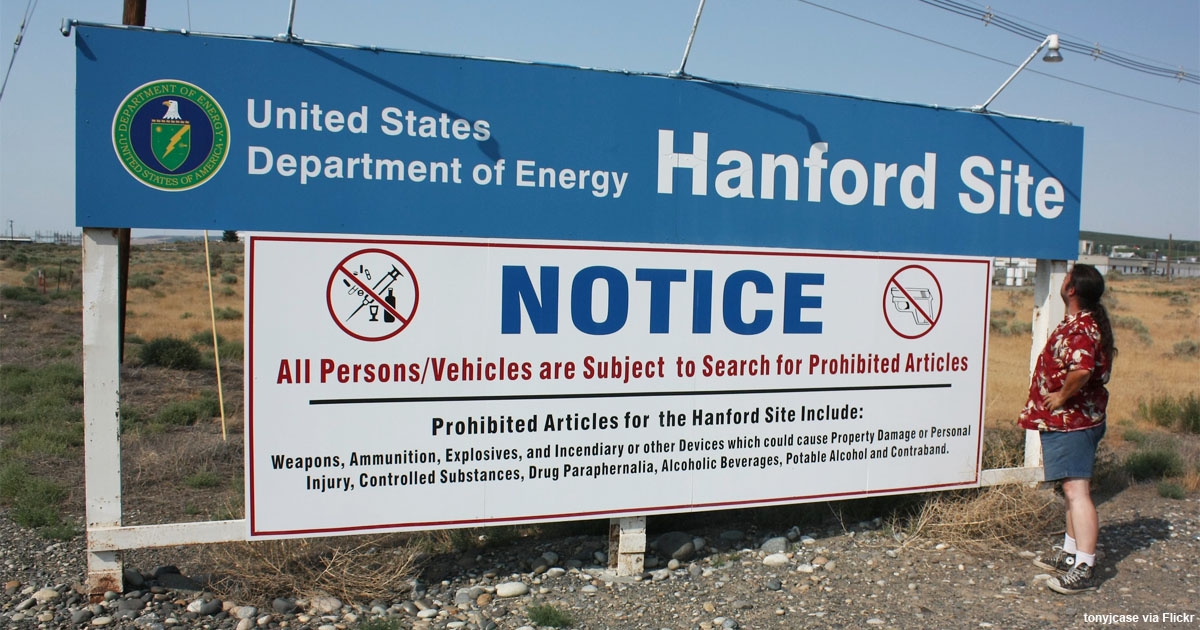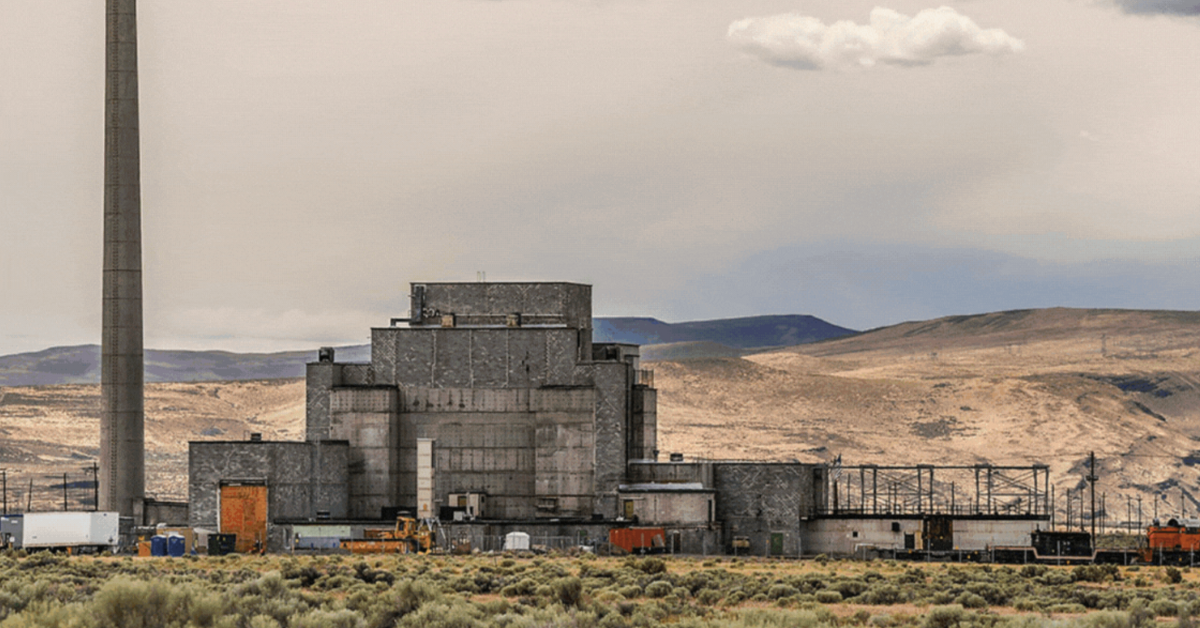OPINION
Hanford guards decry dangerous lockout
The following is from Hanford Guards Union Local 21:
Illegal lockout of Hanford Guards, supported by the Department of Energy, was a danger to national security, to the community, and to the livelihood of workers
RICHLAND, WA (January 7, 2025) — In a first for Hanford, and perhaps the entire nuclear industry, the government contractor Hanford Mission Integration Solutions, LLC (HMIS) locked out the entire bargaining unit of nuclear security police officers at the end of the contract -the folks who guard nuclear material. For more than a month during the holidays, the Union picketed and requested information about the replacement workers, while continuing to bargain in good faith.
The lockout was preceded by a period of unprecedented and belligerent discord in Hanford labor relations. A backlog of grievances had built up in recent years because of employer intransigence. HMIS’ chief counsel had yelled at a federal arbitrator and attempted to fire her during a phone conference to which he was not even invited. HMIS had flatly refused to arbitrate another contract violation, requiring a federal court injunction to herd them back into arbitration.
Despite Union concessions and the alacrity of a federal mediator, HMIS declared prospective impasse on December 26 by decreeing that a Union no-vote on HMIS’ final offer would require a return to work under employer-imposed conditions on January 2, 2025. However, despite declaring inevitable impasse, HMIS subsequently tendered another offer through mediation.

Regressive bargaining was enshrined on the face of the December 31 offer entitled, “HMIS one-time mediation package.” The December 31 offer states that if it is not accepted, then worse terms will be imposed upon return to work. This offer created confusion among the Union’s membership because they were already set to vote on the offer underlying HMIS’ letter of December 26. Thus, they were not sure which offer was the subject of their vote.
The Union did vote down the December 31, 2024 offer from HMIS and had expected to return as demanded. As of January 6, the Union remains locked out and unapprised of what, if any, unilateral terms are imposed by HMIS. The Union has multiple ULPs pending before the National Labor Relations Board, Region 19, and also requested 10(j) relief. Due to limited resources and understaffing, the Region has been slow to get involved despite receiving charges immediately after the unlawful lockout began in November. Since HMIS issued its perfunctory ‘returned to work’ order, the Union has repeatedly attempted to reopen negotiations. HMIS has finally acceded to more mediation but continues its surface bargaining and intransigence.
The ordeal has revealed more than just the belligerence of HMIS.
Although HMIS has refused to answer most of the Union’s lawful requests for information during the ongoing lockout, it did reveal that the federal government supplied the scabs. When asked the source of the replacement workers, HMIS responded that Department of Energy “has provided support from other DOE facilities to HMIS.”
Beyond staffing the facility in support of HMIS, the DOE also applied pressure by deviating from its regulatory framework specifically citing the lockout as the reason. Nuclear security police officers must undergo continuous vetting, receive annual Human Reliability Program (“HRP”) recertification, and maintain a ‘Q security clearance’ issued by the DOE. These are all important because, well, they guard nukes.
The DOE has delegated the recertification process to HMIS and its on-site training facilities. A longer lockout would inevitably transcend the expiration dates of certain officers’ HRP certifications (recertifications are staggered because not everyone graduated the academy on the same date). Without access to their work computers, the Union has been unable to fully assess whether any of its members have experienced recertification lapses this time around, or who may be at risk. Some bad stuff has already happened, though.

Hanford reactor. Photo: Department of Energy
With HMIS refusing officers access to the training facilities and recertification process, such lockouts uniquely imperil not just workers’ bargaining positions, but their entire livelihoods and ability to perform as nuclear security workers at Hanford or elsewhere. HMIS, with the backing of DOE, now wields the power to lock workers out of both their jobs and their entire profession. The message received by locked out workers: submit or suffer the career death penalty.
To make matters worse, DOE has introduced another pressure point. When an officer is already undergoing a continuous vetting procedure (in one case an officer had put in many overtime hours, which flagged his income spike and triggered review) and HMIS declares a lockout, DOE then freezes the continuous vetting. Although a lockout is not listed in the Code of Federal Regulations as a lawful basis to suspend a continuous vetting procedure (and ‘administratively withdraw’ the officer’s certification, as DOE euphemizes it), the DOE has done just that.
The officer whose continuous vetting procedure was suspended, whose certification was ‘administratively withdrawn’ is now stuck in limbo on top of being locked out of the workplace (HMIS originally wrote that his certification was “terminated” but DOE swooped in with a correction letter denoting it ‘administratively withdrawn’ pending the lockout). This particular officer expects to return to work in an uncertified capacity, unable to carry his firearm, unable to work overtime, and unable toperform many of the tasks of his job until the issue is resolved.
DOE has presented its ‘administrative withdrawal’ creature as an accommodation to the locked out worker, rather than an infringement of the worker’s due process rights. DOE would also like the locked-out worker to believe that another nuclear security employer would be happy to restart the vetting procedure and administratively ‘un-withdraw’ the certification, just as readily as hiring a different candidate whose certification is intact. A rosey delusion.
Another officer was approached by a neighbor who works directly for the DOE. The DOE official told the officer he had seen the officer’s name on a ‘DQ’ list. Because occupational licenses are constitutionally protected property, and because the CFR clearly explains the bases and processes for suspending or revoking HRP certification (here, there was no lawful basis or adherence to statutory procedure), the due process rights of these officers have been infringed. The inescapable conclusion is that the due process violations are punishment for being in a union and getting locked out by a greedy government contractor. And HMIS was happy to exploit the leverage brought to bear by its federal benefactor.
The Union hopes that HMIS will come down off its high horse of false impasse and engage in good faith bargaining. The Union also hopes the NLRB will find time to address the egregious conduct of HMIS. With the certifications and security clearances of its membership at stake, the Union was also forced to seek an emergency injunction in federal court. See HGU v. Vance, 4:24-cv-5169-SAB. That motion was denied, but the denial has been appealed to the Ninth Circuit and the underlying lawsuit remains a live controversy under the Administrative Procedure Act and the Constitution. The Union hopes DOE will detach its statutorily mandated certification procedures from its contractor’s Draconian labor negotiation tactics.
For further information or media inquiries, please contact Union President Chris Hall at (509) 845-9600 or cjhall@gmail.com.





